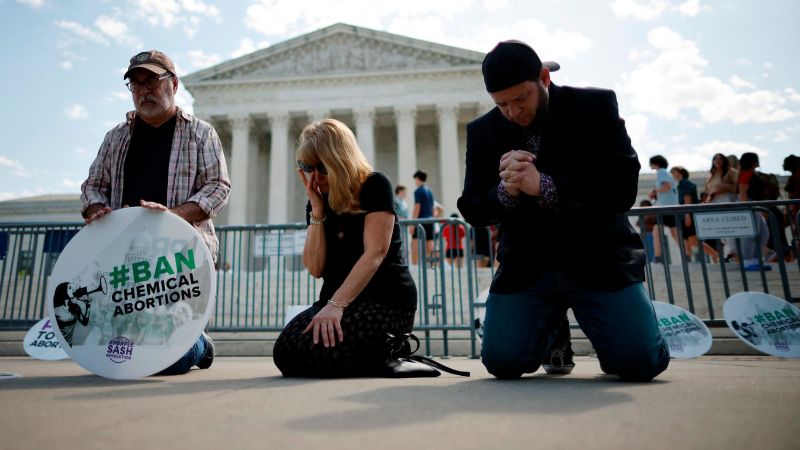The Supreme Court said Wednesday it will consider whether to restrict access to a widely used abortion drug — even in states where the procedure is still allowed.
The case concerns the drug mifepristone that — when coupled with another drug — is one of the most common abortion methods in the United States.
The decision means the conservative-leaning court will again wade into the abortion debate after overturning Roe v. Wade last year, altering the landscape of abortion rights nationwide and triggering more than half the states to outlaw or severely restrict the procedure.



I’m not American so maybe someone can explain this, the way your supreme court works sounds insane to me. Like what power does the US supreme court have that they can just ban drugs? Also what is stopping the states from just ignoring them on decisions like this?
Legislative branch writes the laws. Judicial branch interprets them. Executive branch executes/enforces them.
SCOTUS’s power comes from judicial review and precedent. They can’t make arbitrary decisions on arbitrary things. Someone has to bring a case through a ton of appeals and different courts, then SCOTUS can rule on their interpretation of the law and write one or more essays explaining why and the nuances of their decisions. Those decisions are then examples/precedents that are followed by lower courts in future cases, until someone goes through the process again and SCOTUS decides to take the case and change the precedent, which is even more difficult and rare.
In this case, it sounds like they’re arguing over if the FDA did their legally required due diligence. If not, then their approval is null and void, so the drug is banned.
A bunch of things stop states from ignoring their decisions. In this case, any company making the drug is not going to value it as worth the risk so it probably won’t even make it to court again.
Some federal laws are tied to federal funding. For example, the 21 drinking age is tied to funding for roads. States can choose to set the age to 18, but they lose out on funding.
States can decide to just ignore federal law and get away with it, so long as it’s not something the federal government is willing to fight for. For example, states legalize Marijuana essentially by deciding to just ignore the federal ban. The federal government doesn’t care enough to send in their own anti-weed police or to pass legislation to force states to ban it again.
It even applies at the federal level. The executive branch can decide to just ignore SCOTUS and do their own thing. For example, SCOTUS ruled in favor of Native American’s rights but Andrew Jackson ignored it and did the Trail of Tears anyway (he kicked tons of natives off their land with no shortage of human suffering and death along the way). The Legislative branch can fight against the Executive branch by withholding funding, but the Judicial branch doesn’t have any such “stick”.
It’s rare that situations happen where branches fight against each other or states defy the federal government, but it’s not unheaed of. It’s all part of the checks and balances. In any case, it needs to stay within some realm of reasonableness in order to get buy-in from other government officials and the populace as a whole.
Yo and fuck Andrew Jackson.